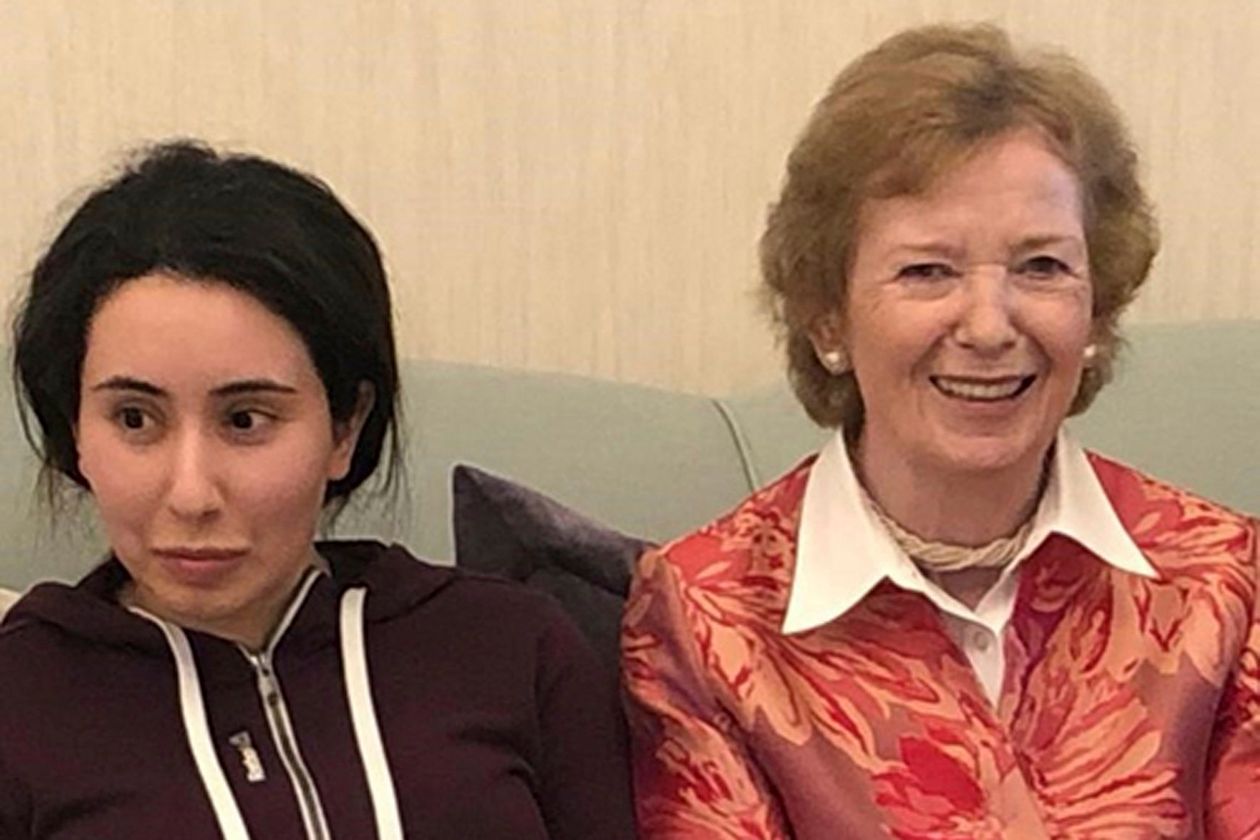Ann McElhinney and Phelim McAleer
January 9, 2019, The Wall Street Journal
Why would Ireland’s former president weigh in on an Arab heiress’s psychiatric condition?
Sheikha Latifa bint Mohammed al-Maktoum wasn’t seen in public for almost a year. In March 2018 Princess Latifa, the 33-year-old daughter of Dubai’s absolute ruler, was planning to claim asylum at the U.S. Embassy in India when she was allegedly seized by Indian and Emirati special forces from a yacht in the Arabian Sea and, apparently, returned home. Then—silence.
After Princess Latifa’s disappearance, her friends released a video, recorded earlier, in which she claimed she’d suffered years of abuse, imprisonment and torture for defying her father, Sheikh Mohammed bin Rashid al-Maktoum. He is one of the world’s richest men. Australia’s “60 Minutes” aired a piece about her titled “The Missing Princess.” Last month the BBC broadcast a documentary “Escape From Dubai: The Mystery of the Missing Princess.”
The bad publicity embarrassed Sheikh Mohammed and undermined his attempts to promote Dubai as a modernizing country. Dubai’s human-rights abuses go mostly unnoticed; its larger neighbors get all the press. As the story of the missing princess was becoming an international scandal, a royal spokesman denounced the BBC for running a documentary “intruding into the princess’s private life.”
Enter Mary Robinson. One of the sheikh’s three wives (not Latifa’s mother) invited the former Irish president and U.N. high commissioner for human rights to have lunch with the missing princess in Dubai under the watchful eye of other family members. The royal family last month released three photos of a smiling Mrs. Robinson lunching with a dazed-looking Princess Latifa. The emirate suggested the photos proved the “missing princess” was being properly looked after.
Then the story took a strange turn. During a BBC interview promoting her latest book, “Climate Justice,” Mrs. Robinson went full Potemkin Princess when asked about the photos. Mrs. Robinson diagnosed Princess Latifa—with whom she’d spent all of two hours—as a “vulnerable woman” with “psychiatric issues.” She called the situation “a family matter.”
The globe-trotting Mrs. Robinson, deep into a second career as a climate warrior, appears oblivious to how she is being used by the Dubai regime. She also seems ignorant of how troublesome women have been dismissed as “crazy” throughout history. In the Soviet Union, those who opposed the state were often deemed “psychiatric cases.” For much of the 20th century, Irish women who became pregnant outside marriage, or were considered promiscuous, were institutionalized in convents for “fallen women.” As Ireland’s president, Mrs. Robinson spoke out forcefully about such injustices.
So what’s changed? It’s hard to say. Mrs. Robinson, once a loud voice for human rights, now uses her global fame to exonerate one of the world’s wealthiest families from accusations of torture and abuse. She seems not to have considered the possibility that the princess’s psychiatric issues, if they are real, might be the result of the mistreatment she alleges.
Mrs. Robinson says she is a friend of the family, but she hasn’t answered emailed questions about a possible financial relationship between the emirate and the Mary Robinson Foundation. As the bad press piled up, her climate-focused nonprofit deleted its Twitter account. The media were barred from her appearance at a climate conference in Dublin Monday.
Mrs. Robinson has an opportunity to salvage her reputation as a human-rights champion. She has been invited to promote her climate book at the Emirates Airline Literature Festival in March. Sheikh Mohammed is the festival’s chairman. Perhaps they can both take the opportunity to explain this strange and unfortunate story.
